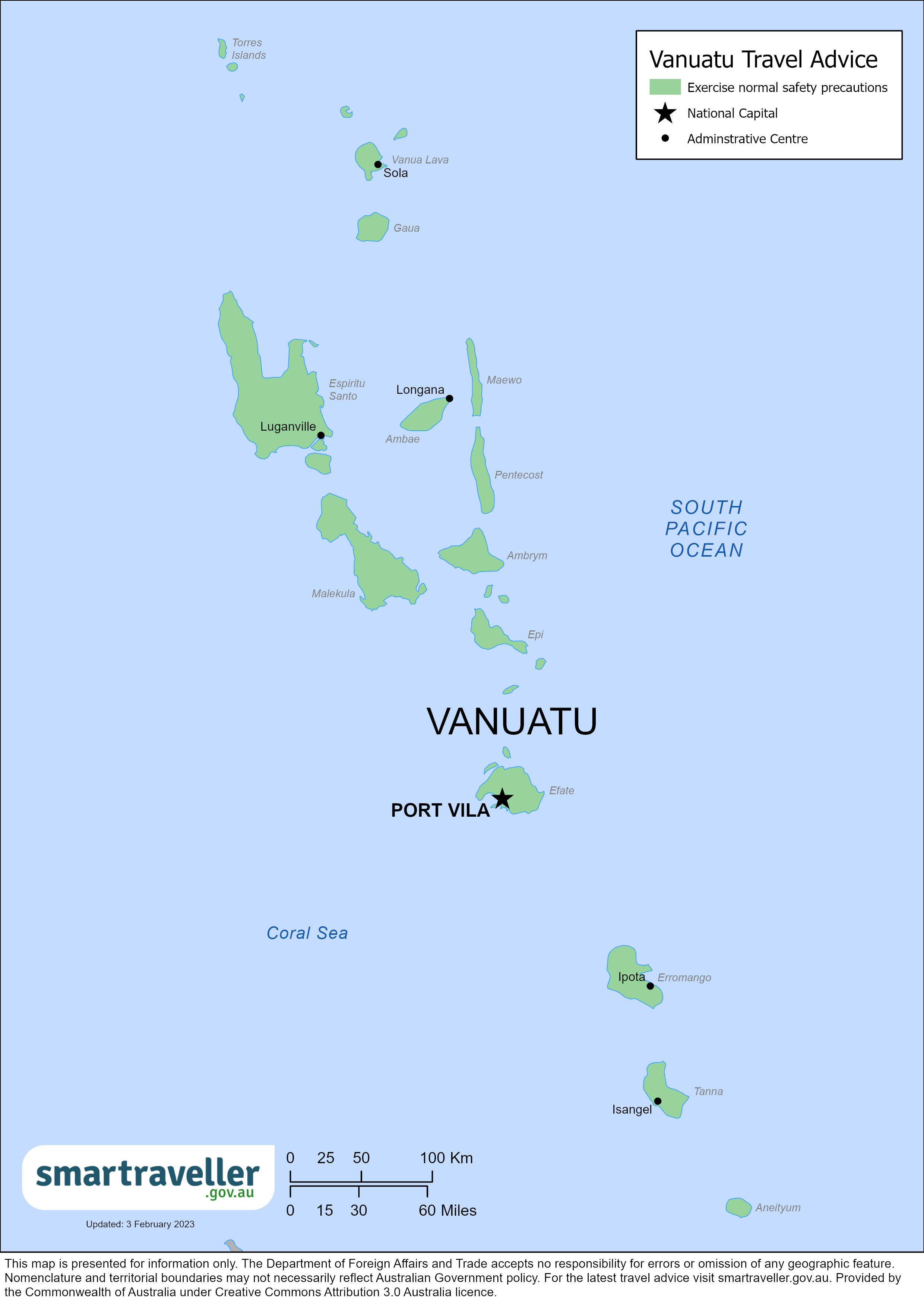Tropical Cyclones Judy, Kevin and Lola
Vanuatu continues to recover from the impacts of Cyclones Judy, Kevin and Lola, which have caused widespread damage. There still may be disruptions to infrastructure, services and telecommunications in some locations.
Natural disasters and severe weather in Vanuatu includes:
Get updates on weather conditions, forecasts, natural disaster watches and warnings before and during your stay.
Monitor local and regional weather and disaster sites (see below), and plan accordingly.
If a natural disaster occurs:
- secure your passport in a safe, waterproof place
- monitor local media and other sources
- follow the advice of local authorities
- keep in contact with your friends and family at home
More information:
Tropical storms and cyclones
The cyclone season is from November to April. Tropical storms and cyclones can also occur in other months. They can disrupt essential services and cause property damage, injuries, and loss of life. The direction and strength of a tropical cyclone can change suddenly. Cyclones can bring:
- torrential rains
- storm surges
- flash flooding
- winds up to 300km/h
The Vanuatu National Disaster Management Office has a colour-coded cyclone alert system that includes safety procedures to follow during a cyclone.
If a cyclone or tropical storm occurs:
- you may get stuck where you are
- flights could be delayed or suspended
- available flights may fill quickly
- the storm may affect access to seaports
- safe shelter may not be available
To prepare for a cyclone or tropical storm:
- know the evacuation plan for your hotel, cruise ship, or other accommodation
- identify your local shelter
- follow the instructions of local authorities
Monitor advice from the Vanuatu National Disaster Management Office and the Vanuatu Meteorological and Geo-Hazards Department.
Flooding
Flooding can occur in Vanuatu during and after cyclones and severe rain events, including:
- flash floods – from heavy rains, and overflowing/burst dams
- river floods – often from seasonal rains or severe rain events
- coastal floods – from tsunamis, storm surges and severe weather events such as cyclones
If flooding occurs:
- take official warnings seriously
- follow the advice of local authorities
Earthquakes
Earthquakes occur regularly in Vanuatu. Minor tremors, under a magnitude of 4.0, are very common and usually have minimal impact on people and property.
Extreme shaking from major earthquakes above a magnitude of 6.0, can:
- cause tsunamis
- cause landslides and mudslides
- collapse buildings
- break gas and water lines, underground and in buildings
- knock down electricity lines
Tsunamis
Tsunamis can occur in Vanuatu and are caused by strong and sudden movement in the ocean. This usually happens when there’s an undersea earthquake, landslide, or volcanic eruption.
A tsunami can arrive within minutes of a nearby tremor or earthquake. It can also occur if no earthquake is felt.
Vanuatu has tsunami warning sirens in Port Vila and Luganville. If you hear tsunami warning sirens or feel a long or strong tremor (lasts more than a minute or makes it hard to stand up). You should:
You can follow:
Volcanoes
Vanuatu has several active volcanoes, including several under-sea volcanoes. Volcanoes are active on the islands of:
- Tanna
- Ambae
- Ambrym
- Lopevi
- Vanua Lava
- Gaua
Visiting an active volcano can be dangerous.
Pay attention to alerts. Alert levels go from 0 (normal, low-level activity) to 5 (very large eruption, island-wide danger).
A Level 3 alert triggers warnings to avoid the volcano summit and nearby areas. Even at lower levels, explosions and injuries from volcanic debris are possible.
Alert levels and access to volcanoes can change quickly. Before traveling to volcanic areas, visit the Vanuatu Meteorological and Geo-Hazards Department website for the latest volcanic activity advice. If there is a volcanic eruption:
- take official warnings seriously
- follow the advice of local authorities

